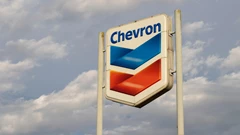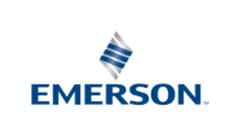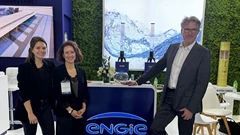Honeywell’s new naphtha technology set to improve energy efficiency and profitability in olefin production
Honeywell has unveiled a transformational new naphtha to ethane and propane (NEP) process it said will boost the efficiency of light olefin production.
Making the announcement on Wednesday, the company explained how the solution would lower CO2 emissions per metric ton of ethylene and propylene produced, and lift profitability.
Honeywell said the innovation demonstrated the “alignment of its portfolio with three compelling megatrends”, including the energy transition.
Enabling cleaner production
Ethane and propane are the ideal feedstocks for producing ethylene and propylene, which are important petrochemicals for the production of chemicals, plastics and fibers.
Honeywell’s NEP technology generates a tunable amount of ethane and propane from naphtha and/or LPG feedstocks. In a typical NEP-based olefin production complex, the ethane will be fed to an ethane steam cracking unit, and the propane will be fed to a propane dehydrogenation unit.
Delivering better margins
The company revealed that this approach would generate more high-value ethylene and propylene with reduced production of lower-value byproducts - compared to a traditional mixed-feed steam cracking unit directly processing the same quantity and composition of feedstock.
This new approach could result in net cash margin increases of 15-50%.
An NEP-based olefins complex also reduces CO2 intensity per metric ton of light olefins produced; by 5-50% versus a traditional mixed-feed steam cracker.
Answering industry call
This latest technology expands the Honeywell portfolio to help meet growing demand for efficient petrochemical solutions, explained Matt Spalding, Vice Pesident and General Manager of Honeywell Energy and Sustainability Solutions in MENA.
“The petrochemical industry faces strong competition and challenges in obtaining raw materials globally,” he continued.
“Our technology helps enable more efficient production of ethylene and propylene, two chemicals which are in high demand, while also helping our customers lower their carbon emissions.”
The NEP solution is a part of Honeywell’s Integrated Olefin Suite technology portfolio - a “first of its kind in the industry” that creates differentiated offerings to enhance the production of light olefins.
KEEPING THE ENERGY INDUSTRY CONNECTED
Subscribe to our newsletter and get the best of Energy Connects directly to your inbox each week.
By subscribing, you agree to the processing of your personal data by dmg events as described in the Privacy Policy.
More technology news

Emerson showcases advanced automation technologies at EGYPES 2025

Engine No. 1, Chevron and GE Vernova to power US data centres

Emerson to complete buyout of AspenTech for $7.2 billion

SLB and Star Energy Geothermal announce technology collaboration

ADNOC and AIQ successfully complete trial phase of agentic AI solution

Phoenix Air Unmanned achieves single-day pipeline patrol milestone

Endress+Hauser integrates SICK’s gas analysis and flow measurement technology

SLB awarded multi-region deepwater contracts by Shell

ADNOC Drilling, SLB and Patterson-UTI close Turnwell joint venture
















